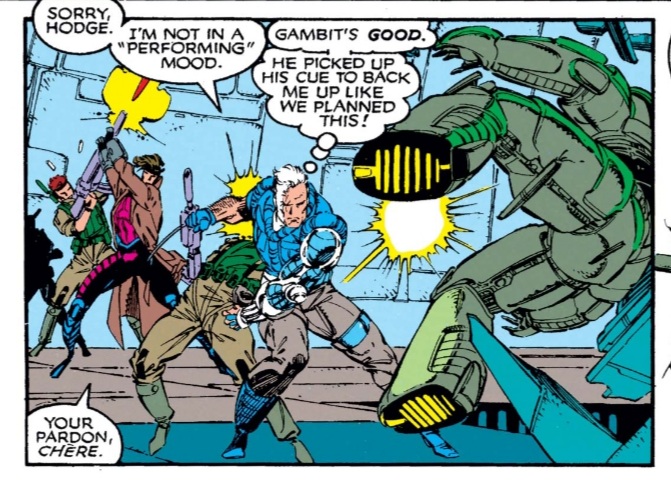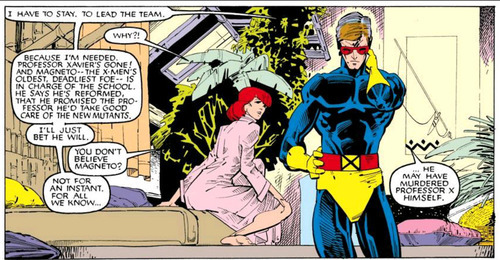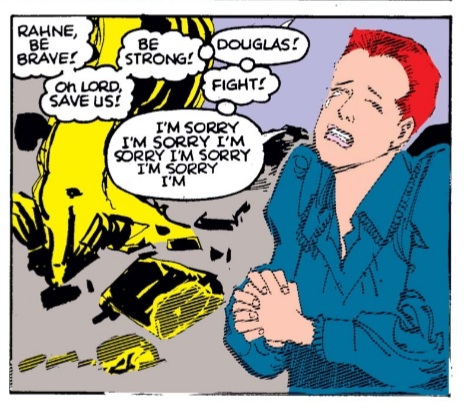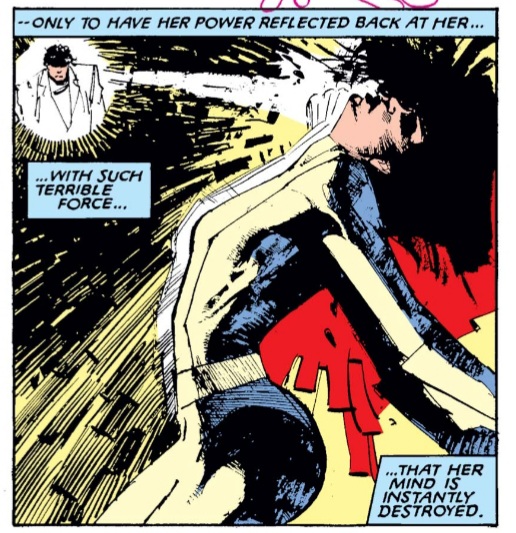
In Excalibur #23, Claremont revisits one of his greatest character projects: Illyana Rasputin. Rather than take the AU story in the direction of the better-life-not-led, however, Claremont adds depth to Illyana’s 616 sacrifice by showing us the alternative. #xmen #Magik 1/8 

In the pages of UXM, Magik, and The New Mutants, Claremont built Illyana up as a deeply symbolic character, exploring childhood trauma through an abstract metaphor of surviving hell and having to integrate back into a more innocent world. 2/8 

It was Louise Simonson, however, who wrote Illyana’s ending (with some co-ordination from C) in which Illyana sacrifices the life she’s struggled to build to prevent the hell of her making from overtaking others. It might be the finest writing of Simonson’s storied career. 3/8 

Thus, visiting an AU Illyana in Excalibur provides a simple opportunity to pull on the reader’s heartstrings with a tale of the hero alive and well (as later writers will do), but Illyana is only one of those things here. 4/8 

This Illyana is depicted as fully corrupted by the Darkchylde. Where 616 sacrificed herself for the world, this Illyana would sacrifice the world for her aims. The depth of her corruption is, of course, most poignantly symbolized in her betrayal of her world’s Kitty Pryde. 5/8 

It takes the Phoenix to defeat this Illyana (and purge the Darkchylde again) in this broken world that Illyana built. The message, thus, becomes clear: that Illyana’s 616 sacrifice was necessary for both the safety of the world, and for the preservation of her soul. 6/8 

The natural quote to insert here would of course be from The Dark Knight: “You either die a hero or you live long enough to see yourself become the villain.” Illyana chose the former, and her portrayal in Excalibur #23 just solidifies this. 7/8
Through this approach, Claremont actually enhances (rather than cheapens) Simonson’s resolution to Claremont’s long-built and obviously much-beloved character story. It’s a very interesting example of effective shared-universe storytelling, something comics can struggle with. 8/8 

For reference, we did a video essay on Magik's overall narrative and symbology over the years:
• • •
Missing some Tweet in this thread? You can try to
force a refresh
























